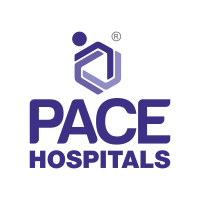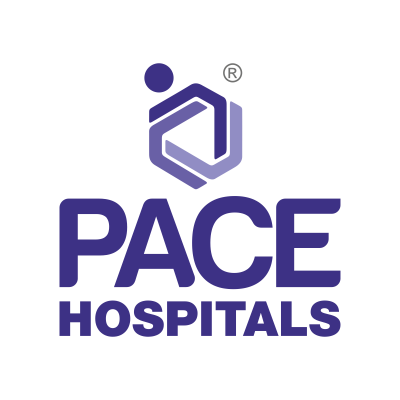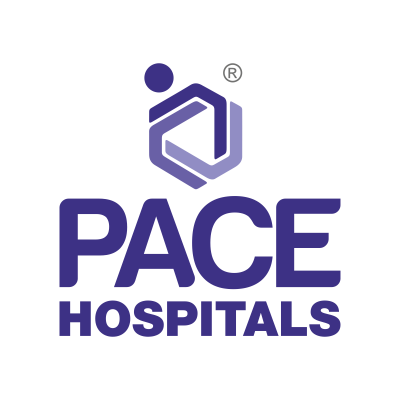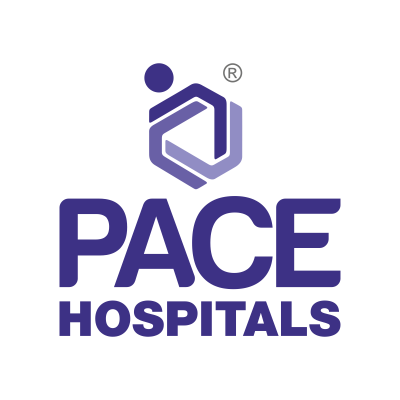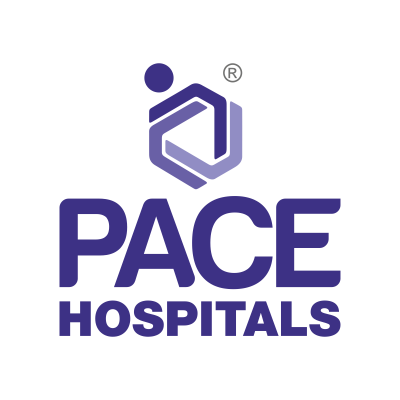Best Constipation Doctor in Hyderabad for Chronic & Acute Bowel Issues
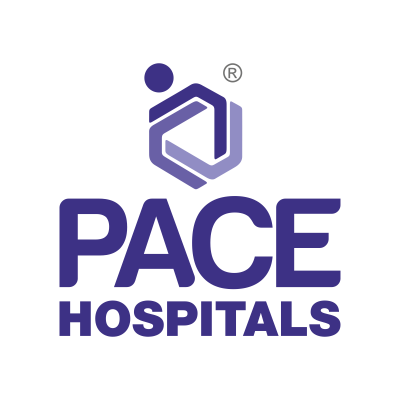
Strong 8k brings an ultra-HD IPTV experience to your living room and your pocket.
PACE Hospitals is recognized for having some of the best constipation doctors in Hyderabad, Telangana, India known for their expertise in diagnosing and managing chronic and acute bowel issues. Our team of experienced constipation doctors offers individualized, patient-centric care to address persistent symptoms such as infrequent bowel movements, hard stools, abdominal bloating, and discomfort.
Equipped with advanced diagnostic tools including colonoscopy, anorectal manometry, and imaging studies, PACE Hospitals ensures accurate evaluation of constipation and its underlying causes. Whether it’s functional constipation, irritable bowel syndrome (IBS-C), pelvic floor dysfunction, or medication-induced issues, our constipation specialists tailor treatment plans based on each patient’s condition and lifestyle.
We offer a comprehensive range of treatment options—from dietary and lifestyle modifications, laxative optimization, and biofeedback therapy to minimally invasive procedures like Botox injections for pelvic floor dysfunction and surgical interventions in severe cases. Our holistic approach aims to improve bowel function, relieve discomfort, and enhance overall well-being.
With a strong commitment to clinical excellence, compassionate care, and long-term digestive health, PACE Hospitals is a trusted destination for those seeking the Best Constipation Doctor in Hyderabad for Chronic & Acute Bowel Issues
Understanding Constipation
Constipation is typically defined as having fewer than three bowel movements per week, often accompanied by hard, dry stools, straining, abdominal discomfort, and a sense of incomplete evacuation. However, the experience of constipation is highly individual. For some, it may be an occasional inconvenience; for others, it becomes a chronic, life-disrupting problem that affects physical, emotional, and social well-being.
Types of Constipation
Constipation is not a one-size-fits-all condition. It can be classified into several types based on its cause and duration:
Acute Constipation:
This type has a sudden onset and is often related to temporary factors such as dietary changes, travel, or medication use. Acute constipation usually comes with simple interventions.
Chronic Constipation:
Defined by symptoms lasting several weeks or longer, chronic constipation may be due to underlying medical or functional issues. It often requires a thorough evaluation to identify the root cause.
Functional Constipation:
In this form, there is no identifiable anatomical or biochemical cause. It is often related to slow movement of stool through the colon or poor rectal coordination. Functional constipation is common and can be particularly challenging to manage without expert guidance.
Secondary Constipation:
This type is caused by medications, metabolic disorders, neurological diseases, or structural abnormalities in the digestive tract. Addressing the underlying cause is essential for effective treatment.
Causes and Risk Factors
Constipation can result from a wide range of factors, many of which are modifiable. Understanding these causes is the first step toward effective prevention and management.
Low Fiber Diet:
A diet lacking in fruits, vegetables, and whole grains is a leading cause of constipation. Fiber adds bulk to stool and helps it move through the digestive tract.
Dehydration:
Not drinking enough water leads to harder stools that are more difficult to pass.
Sedentary Lifestyle:
Physical inactivity slows down intestinal motility, making constipation more likely.
Ignoring the Urge:
Delaying bowel movements can cause stool to become dry and hard, worsening constipation.
Medications:
Certain drugs, such as opioids, antidepressants, antacids, iron supplements, and calcium channel blockers, can slow bowel movements.
Medical Conditions:
Chronic diseases like diabetes, hypothyroidism, Parkinson’s disease, irritable bowel syndrome (IBS), and neurological disorders can contribute to constipation.
Aging:
Older adults are more prone to constipation due to decreased mobility, dietary changes, and increased medication use.
Pregnancy:
Hormonal changes and pressure from the growing uterus can slow bowel movements, making constipation common during pregnancy.
Psychological Factors:
Stress, anxiety, and depression can affect gut motility and contribute to constipation.
Symptoms and Warning Signs
While the hallmark of constipation is infrequent or difficult bowel movements, other symptoms may include:
• Abdominal bloating and discomfort
• Hard, lumpy stools
• Straining during defecation
• A sensation of incomplete evacuation
• Rectal pain or bleeding (especially if hemorrhoids or fissures develop)
• Loss of appetite or nausea
It is important to recognize when constipation may be a sign of a more serious condition. Warning signs that require prompt medical attention include:
• Sudden, severe constipation
• Blood in stools
• Unexplained weight loss
• Persistent pain or vomiting
• Family history of colon cancer
Complications of Untreated Constipation
Ignoring chronic constipation can lead to several complications, some of which can be serious:
Hemorrhoids:
Straining during bowel movements can cause swollen veins in the rectum, leading to pain and bleeding.
Anal Fissures:
Hard stools can cause small tears in the lining of the anus, resulting in pain and bleeding.
Fecal Impaction:
Severe constipation can lead to a large mass of hard stool becoming stuck in the colon or rectum, which may require medical intervention.
Rectal Prolapse:
Chronic straining can cause part of the rectum to protrude from the anus.
Urinary Symptoms:
Constipation can put pressure on the bladder, leading to urinary urgency, frequency, or incomplete emptying, especially in children and the elderly.
Reduced Quality of Life:
Chronic constipation can cause discomfort, anxiety, and social embarrassment, affecting daily activities and mental health.
Advanced Diagnostic
PACE Hospitals is equipped with cutting-edge diagnostic facilities to identify the root cause of constipation. Accurate diagnosis is the foundation of effective treatment, and the hospital’s comprehensive approach includes:
Colonoscopy:
This procedure allows doctors to visualize the colon and rectum, ruling out structural abnormalities, polyps, or cancer.
Anorectal Manometry:
This test measures the strength and coordination of the muscles involved in defecation, helping to diagnose pelvic floor dysfunction and other motility disorders.
Colonic Transit Studies:
These studies assess how quickly food moves through the colon, identifying cases of slow-transit constipation.
Imaging Studies:
Abdominal X-rays, CT scans, and MRI provide detailed images of the digestive tract, helping to detect obstructions or other abnormalities.
Laboratory Tests:
Blood tests can identify metabolic or hormonal imbalances, such as hypothyroidism or diabetes, that may contribute to constipation.
By combining these diagnostic tools, the specialists at PACE Hospitals can differentiate between functional, medication-induced, and secondary causes of constipation, ensuring a targeted and effective treatment plan.
Comprehensive Treatment Options
The management of constipation at PACE Hospitals is individualized, evidence-based, and holistic. Treatment options are tailored to each patient’s unique needs and may include:
1. Dietary and Lifestyle Modifications
A high-fiber diet is the cornerstone of constipation management. Patients are encouraged to consume plenty of fruits, vegetables, whole grains, and legumes. Adequate hydration is equally important, with a recommended intake of at least 2-3 liters of water daily. Regular physical activity, such as walking, yoga, and core-strengthening exercises, help stimulate bowel movements. Establishing regular bowel habits and responding promptly to the urge to defecate are also emphasized.
2. Medications
When lifestyle changes are insufficient, medications may be prescribed. These include:
• Bulk-forming agents: Psyllium, methylcellulose, and other fiber supplements add bulk to stool and promote regularity.
• Osmotic laxatives: Polyethylene glycol and lactulose draw water into the colon, softening stool and making it easier to pass.
• Stool softeners: Docusate sodium helps moisten stool.
• Stimulant laxatives: Bisacodyl and senna stimulate intestinal contractions but are used cautiously to avoid dependency.
• Prokinetic agents: These medications enhance the movement of the digestive tract and are used in cases of slow colon transit.
3. Biofeedback Therapy
For patients with pelvic floor dysfunction, biofeedback therapy is a highly effective, non-invasive treatment. This therapy retrains the muscles involved in defecation, improving coordination and reducing symptoms.
4. Minimally Invasive Procedures
In select cases, minimally invasive procedures may be recommended. Botox injections can relax overactive pelvic floor muscles, while endoscopic interventions can address structural abnormalities or severe constipation.
5. Surgical Interventions
Surgery is reserved for rare, severe cases where conservative measures have failed. Procedures may include correction of rectal prolapse or removal of a portion of the colon in cases of refractory slow-transit constipation.
Special Considerations: Constipation in Pregnancy and Older Adults
Constipation During Pregnancy
Hormonal changes and pressure from the growing uterus can slow bowel movements, making constipation common during pregnancy. Safe management includes dietary adjustments, increased hydration, and gentle laxatives if needed, always under medical supervision. The specialists at PACE Hospitals are experienced in providing safe, effective care for pregnant women, ensuring both maternal and fetal well-being.
Constipation in Older Adults
Decreased mobility, medication use, and chronic diseases make constipation common in the elderly. Treatment focuses on gentle, non-irritating laxatives, fiber, hydration, and regular monitoring to prevent complications like fecal impaction. The hospital’s multidisciplinary team ensures that older adults receive comprehensive, compassionate care tailored to their unique needs.
Diet and Nutrition in Constipation Management
Diet plays a crucial role in both the prevention and management of constipation. The specialists at PACE Hospitals work closely with patients to assess dietary patterns and develop integrated nutritional and medical treatment plans. Key dietary recommendations include:
• Increasing Fiber Intake: Aim for at least 25-30 grams of fiber per day from natural sources such as fruits, vegetables, whole grains, and legumes.
• Staying Hydrated: Drink plenty of water throughout the day to keep stools soft and easy to pass.
• Regular Meal Times: Eating at consistent times helps regulate bowel movements.
• Limiting Processed Foods: Reduce intake of processed and high-fat foods, which can contribute to constipation.
The Impact of Physical Activity and Stress Management
Regular physical activity stimulates bowel movements by enhancing intestinal muscle contractions and improving digestion. A sedentary lifestyle, especially among office workers or older adults, often contributes to sluggish bowel function. Incorporating daily walking, stretching, or core-strengthening exercises can significantly ease symptoms.
Stress also plays a significant role in gut health. The body’s stress response can slow intestinal movement, leading to constipation. Managing stress through relaxation techniques, exercise, and therapy is often an important component of treatment, especially in individuals with irritable bowel syndrome (IBS) or functional constipation.
Why Choose PACE Hospitals for Constipation Treatment in Hyderabad?
PACE Hospitals stands out for its:
• Expert Team: Highly qualified gastroenterologists with decades of experience in managing complex bowel disorders.
• Advanced Diagnostics: Cutting-edge facilities for accurate evaluation and monitoring.
• Comprehensive Care: From dietary counseling to advanced interventions, all aspects of care are covered.
• Patient-Centric Approach: Individualized treatment plans and compassionate care tailored to each patient’s needs.
• Convenient Locations: Branches in HITEC City and Madinaguda, easily accessible from all major areas of Hyderabad.
• Accreditations: NABH, NABL, NBE, and ISO-9001 certified, ensuring the highest standards of care.
• 24/7 Support: Round-the-clock guidance, pharmacy, and emergency services.
Meet Our Experts at PACE Hospitals
Dr. Govind Verma
Interventional Gastroenterologist & Hepatologist With over 23+ years of experience.
Dr. Padma Priya
Consultant Gastroenterologist and Hepatologist With over 9+ years of experience.
Dr. M Sudhir
Sr. Gastroenterologist and Hepatologist (Liver Specialist) With over 40+ years of experience.
At PACE Hospitals, one of the best hospitals in Hitech City, Hyderabad, Telangana, India, you’ll find all these qualities and more, ensuring you receive the best possible care for constipation. Patients benefit from a multidisciplinary approach, personalized treatment plans, and access to the latest and most effective constipation therapies. The hospital’s commitment to excellence and patient satisfaction makes it a top choice for constipation treatment in Hyderabad. If you are searching for the best doctor for constipation in Hyderabad, PACE Hospitals is your trusted partner for advanced and compassionate care.
👉 Book your online appointment with Leading Doctors in Hyderabad, Telangana, India
Conclusion
Constipation is more than just an inconvenience—it can be a sign of underlying health issues and can significantly affect your quality of life. With the right medical guidance, most cases can be effectively managed or cured. PACE Hospitals in Hyderabad offers world-class expertise, advanced diagnostics, and a holistic approach to constipation care, making it the top choice for patients seeking lasting relief and improved digestive health.
Note: IndiBlogHub features both user-submitted and editorial content. We do not verify third-party contributions. Read our Disclaimer and Privacy Policyfor details.

